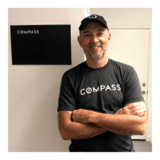Summary
On the final day of the conference, the focus shifted from product and processes to people, emphasizing the practice of human-centered design internally within teams as well as externally for customers. Peter Marrahold opened the session, stressing the importance of maintaining humanism at scale in design work. Milestone followed with a case study on empathetic transformation across multiple disciplines, showing how to overcome political challenges in organizational change. My Bill presented practical strategies for building design-minded communities within legacy companies by integrating diverse disciplines. Two emotionally impactful talks highlighted the necessity of self-care post-pandemic, urging professionals to prioritize their own well-being before helping others. Word Caps expanded on professional self-care approaches, while Meun explored career transitions from managerial roles to principal individual contributor positions, encouraging people to stay authentic to their passions. The finale from Willer focused on opportunities for designers to create government services that prioritize equity and resilience, underscoring the responsibility designers hold when shaping systems for millions. The day provided a balance of practical advice and heartfelt reminders, aiming to resonate both mentally and emotionally with the audience.
Key Insights
-
•
Human-centered design should be applied within teams, not just for customers.
-
•
Scaling design requires maintaining a focus on humanism at every level.
-
•
Empathy across disciplines is key to successful organizational transformation.
-
•
Building design communities in century-old companies requires intentional inclusion of various disciplines.
-
•
Self-care is essential for sustainable professional practice, especially post-pandemic.
-
•
Career growth can be vertical or lateral, and it’s important to stay true to personal passions.
-
•
Transitioning from managerial to principal individual contributor roles offers a path for experienced professionals.
-
•
Designers have a responsibility to create equitable, resilient government services.
-
•
Addressing politics and reservations openly aids in transformation and community-building efforts.
-
•
Putting on your own oxygen mask first is a metaphor for prioritizing one’s own well-being before assisting others.
Notable Quotes
"We often talk about our customers, but we forget the other people involved: ourselves and our teams."
"Design at scale is really humanism at scale."
"Transformation happens through empathy across multiple disciplines and reporting lines."
"Building design communities in legacy companies means bringing other disciplines into the fold."
"Taking care of ourselves first is essential before we can effectively care for others."
"Growth in your career doesn’t always have to be vertical; sometimes sideways or diagonal moves help you stay true to yourself."
"Transitioning to a principal role lets you focus on what you love without managing teams directly."
"Designers must take responsibility when designing systems that impact millions."
"Overcoming reservations and politics is part of enabling transformation."
"Putting on your oxygen mask first is a metaphor for self-care we often neglect in professional life."
Or choose a question:
















More Videos

"Constraints during ideation sessions help avoid endlessly blue-sky thinking and keep ideas focused."
Billy CarlsonIdeation tips for Product Managers
December 6, 2022

"If you haven’t done accessibility work yet, it makes sense to get started on mobile because you already have the tools in your pocket."
Sam ProulxMobile Accessibility: Why Moving Accessibility Beyond the Desktop is Critical in a Mobile-first World
November 17, 2022

"Developers are stinking gods among men, generous in their selfishness who keep fixing what’s not broken until it is."
Dan WillisEnterprise Storytelling Sessions
May 13, 2015

"Design is frequently misunderstood; sometimes it’s just about explaining why it’s important to get others involved."
Michael PolivkaScaling Design through Relationship Maps
November 7, 2017

"Trying to map all possible connotations and context in language is mind-bogglingly computationally expensive."
Karen McGrane Jeff EatonAI for Information Architects: Are the robots coming for our jobs?
November 21, 2024

"One researcher per team for at least three days a week was considered an outrageous luxury at GDS in 2013."
Leisa ReicheltOpening Keynote: Operating in Context
November 7, 2018

"Clear and consistent communication really keeps design leadership accountable and promotes transparency via knowledge sharing."
Kim Holt Emma Wylds Pearl Koppenhaver Maisee XiongA Salesforce Panel Discussion on Values-Driven DesignOps
September 8, 2022

"I thought I could single handedly bring design thinking to MailChimp. Turns out it took 1,000 people."
Jacqui Frey Alison RandSetting the Table for Dynamic Change
October 24, 2019
"If we’re going to design something and it can’t be the most simple and delightful experience, but at least minimally usable, then I will take that to get it in users’ hands."
How to Identify and Increase your "Experience Quotient"
June 15, 2018
















